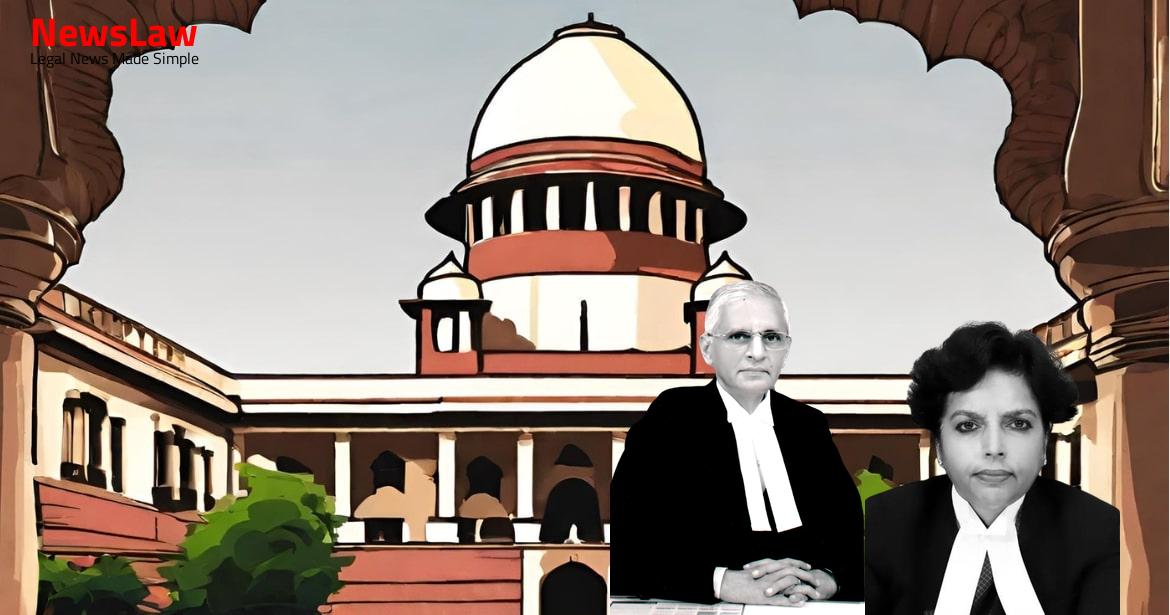In the intricate tapestry of Indian criminal jurisprudence, the case of ABC v. The State (NCT of Delhi) unfolds as a narrative entwined with questions of criminal responsibility and mental health. The legal saga, set against the backdrop of a complex web of facts, traverses through the realms of insanity, culpability, and the delicate balance between justice and compassion.
The story commences with ABC, the appellant, charged with the heinous crime of murder under Section 302 of the Indian Penal Code. However, the uniqueness of this legal narrative lies in the peculiar circumstances surrounding ABC’s mental health at the time of the alleged offense.
The primary argument presented by ABC’s legal counsel revolves around the mental state of the accused. ABC, diagnosed with schizophrenia, raised the defense of insanity, contending that, at the time of the offense, they were not in a sound state of mind to comprehend the nature and consequences of their actions. The legal battleground witnessed a clash of expert opinions, psychiatric evaluations, and the fundamental principles of criminal liability. ABC’s legal team emphasized the need to consider mental health as a mitigating factor, urging the court to recognize the diminished capacity of the accused at the time of the alleged crime.
The legal analysis in ABC v. The State (NCT of Delhi) delved into the interpretation of Section 84 of the Indian Penal Code, which provides a defense of insanity if, at the time of committing an act, the accused was incapable of knowing the nature of the act or that it was wrong. The Supreme Court, led by Chief Justice R.M. Lodha, engaged in a nuanced exploration of the interplay between mental health and criminal responsibility.
The majority opinion in the case, informed by a compassionate approach, acknowledged the importance of considering mental health as a mitigating factor in criminal cases. The Court, drawing inspiration from earlier decisions such as Ratan Lal v. State of M.P. (1970 AIR 740), held that a person suffering from a mental disorder affecting their cognitive faculties should not be held criminally liable in the same manner as a person in a normal mental state.
Also Read: https://newslaw.in/supreme-court/nalsa-vs-union-of-india-transcending-identity-a-legal-case-summary/
The judgment recognized that criminal liability cannot be attributed to individuals who, due to mental illness, are unable to appreciate the consequences of their actions. The Court, balancing justice and humanity, acquitted ABC on the grounds of insanity and directed their release.
The dissenting opinion, penned by Justice S.A. Bobde, expressed reservations about the expansive interpretation of the insanity defense. While acknowledging the significance of mental health considerations, Justice Bobde cautioned against adopting a broad approach that might dilute the principles of criminal liability. The legal aftermath of ABC v. The State (NCT of Delhi) echoed through subsequent decisions, contributing to the evolving discourse on mental health and criminal responsibility. The judgment inspired legislative initiatives, emphasizing the need for a more empathetic and nuanced approach to individuals grappling with mental health challenges within the criminal justice system.
We think it necessary to also underscore the fact that the Guardian Court as well as the High Court which was in seisin of the Appeal ought not to have lost sight of the fact that they had been called upon to discharge their parens patriae jurisdiction. Upon a guardianship petition being laid before the Court the concerned child ceases to be in the exclusive custody of the parents; thereafter, until the attainment of majority, the child continues in curial curatorship. Having received knowledge of a situation that vitally affected the future and welfare of a child, the Courts below could be seen as having been derelict in their duty in merely dismissing the petition without considering all the problems, complexities and complications concerning the child brought within its portals. The Appeal is therefore allowed. The Guardian Court is directed to recall the dismissal order passed by it and thereafter consider the Appellant’s application for guardianship expeditiously without requiring notice to be given to the putative father of the child.
Citation: AIR 2015 SUPREME COURT 2569, 2015 AIR SCW 3999, (2015) 152 ALLINDCAS 177 (SC), 2015 (5) ALL LJ 115, 2015 (4) AIR BOM R 763, 2015 (3) AIR KANT HCR 570, (2015) 5 MAD LW 693, (2015) 129 REVDEC 62, (2015) 5 ALLMR 418 (SC), (2015) 3 ALL RENTCAS 360, (2015) 5 MAD LJ 496, (2015) 2 ORISSA LR 492, (2015) 3 RECCIVR 766, (2015) 3 JLJR 528, (2015) 4 KCCR 3457, (2015) 4 CIVLJ 72, (2015) 3 CIVILCOURTC 698, (2015) 7 SCALE 483, (2016) 3 PUN LR 722, (2015) 1 CIVILCOURTC 842, (2015) 146 ALLINDCAS 408 (RAJ), (2015) 4 PAT LJR 18, (2015) 3 ICC 774, (2015) 4 ALL WC 3265, (2016) 121 CUT LT 89, (2015) 5 ANDHLD 1, (2015) 2 MARRILJ 81, AIR 2015 SC (CIV) 1937, 2015 (10) SCC 1, (2015) 2 CLR 246 (SC), (2015) 3 CURCC 105, (2015) 221 DLT 288, (2015) 5 BOM CR 330
Case Title: ABC Vs. The State (NCT of Delhi)



